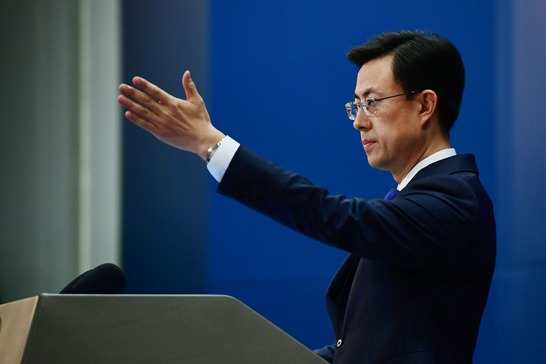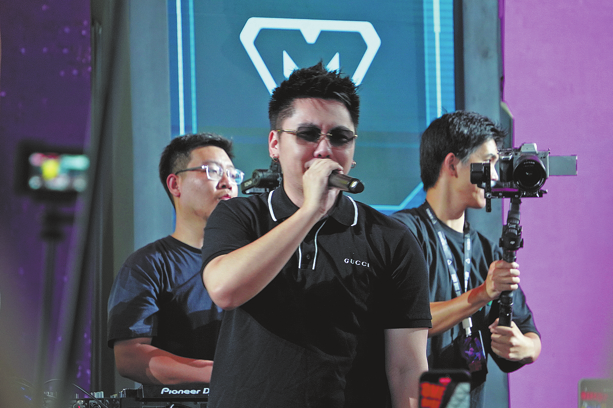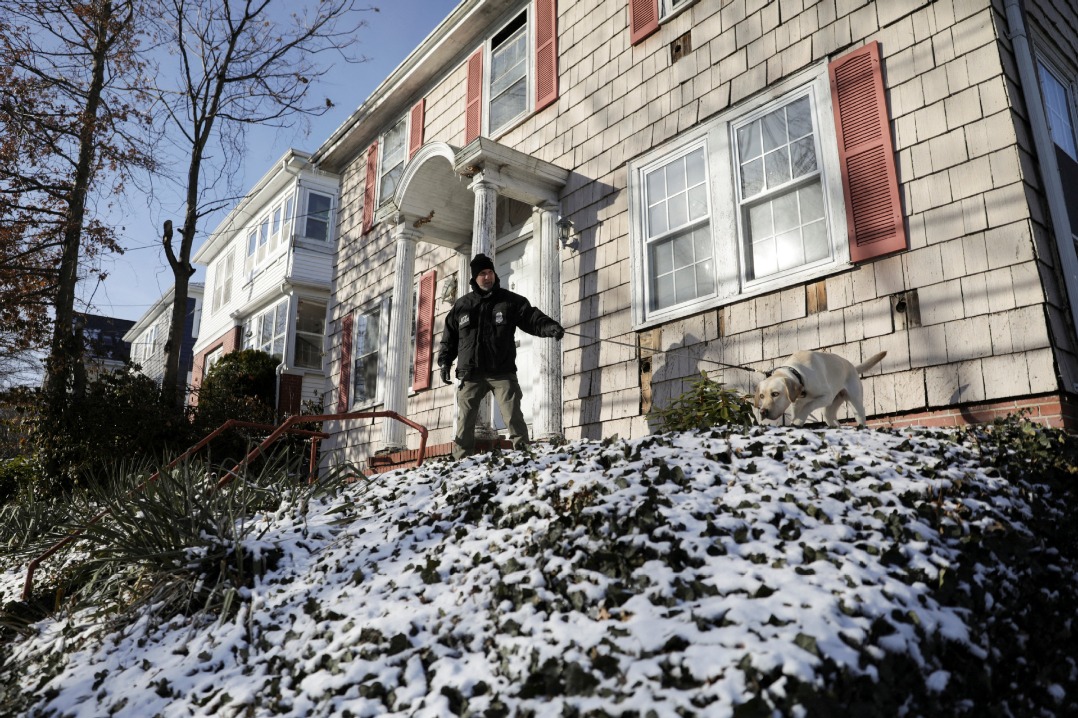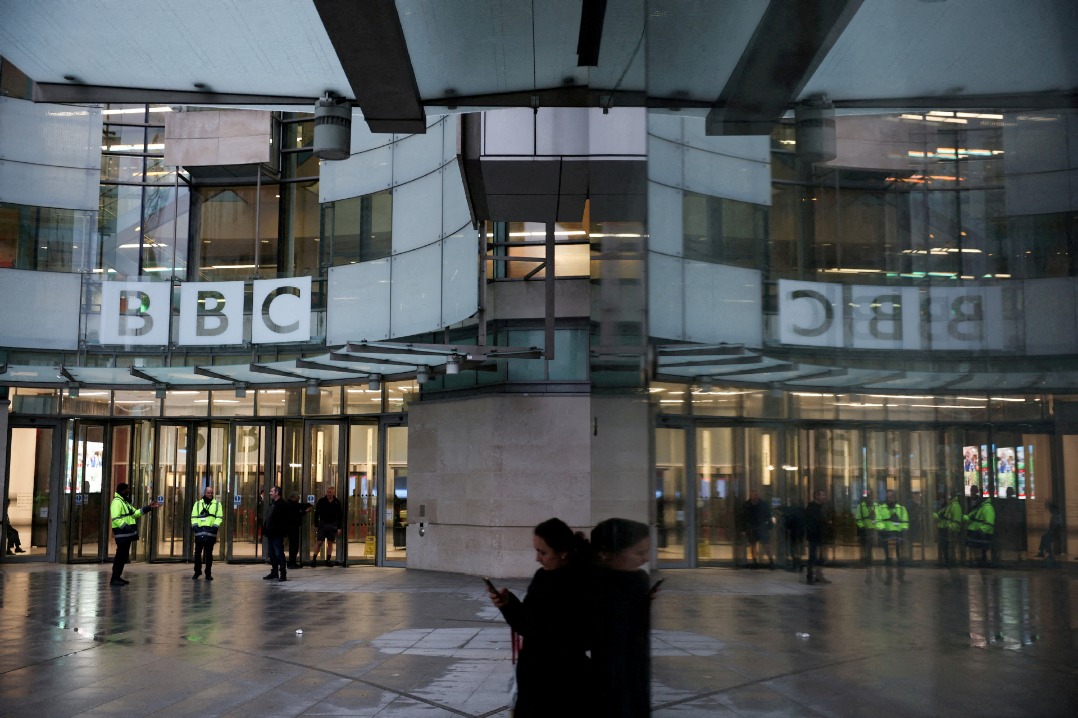Suspensions start at Columbia

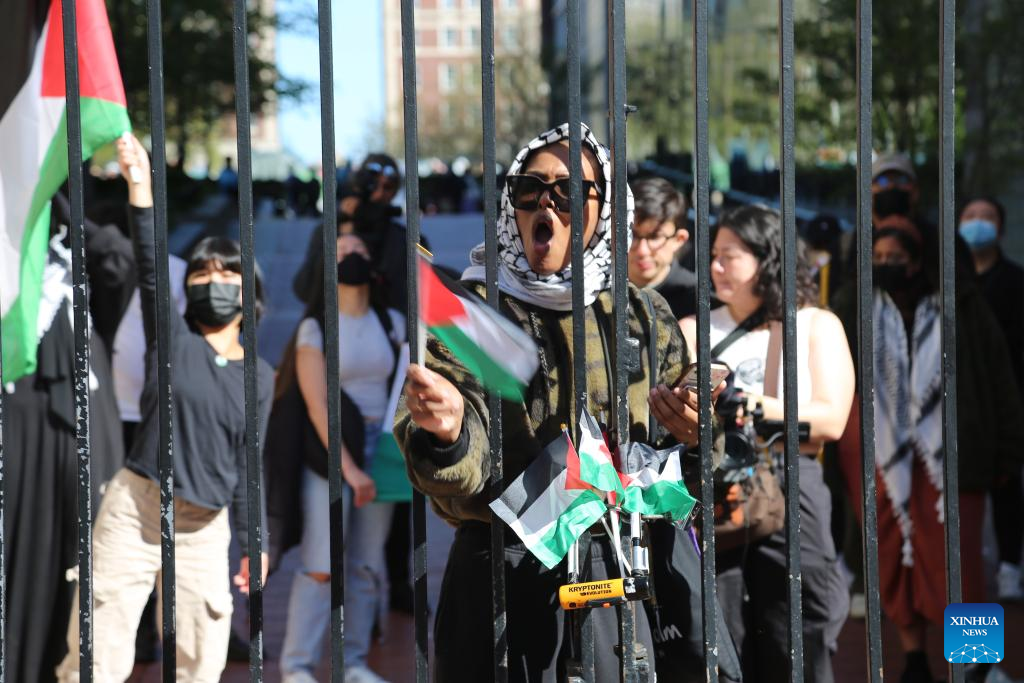
Columbia University began suspending student protesters Monday who defied a deadline to vacate their encampment on the campus.
The university had given students until 2 pm Monday to clear out of the encampment, warning that they would face immediate suspension "pending further investigation" and be barred from completing the spring semester if they didn't leave by then.
The university said it had identified some but not all the students in the encampment, and they were likely to be notified by email of their suspensions, which are expected to cut off their access to school buildings and amenities and potentially keep them from taking finals.
The activists had defied the deadline with chants, clapping and drumming, and hundreds of pro-Palestinian demonstrators marched around the encampment.
Columbia University faculty members stood at the entry of the encampment on the Upper Manhattan campus, holding hands to protect students they said were exercising freedom of speech. Police were outside the encampment at the school gates as protesters there chanted.
But by 4 pm most of the protesters had begun to disperse, leaving only what appeared to be several dozen students and about 80 tents inside the encampment.
The campus was thronged with media as the deadline approached, but there was no police presence near the encampment. The police were outside the school's gates, as were protesters chanting.
"Today, they are maligning us. It's short-sighted and it's unfair," said Sueda Polat, a 23-year-old graduate student and one of the student organizers, told China Daily. "Our only challenge is the threats that the university keeps making against us.
"Our demands remain the same, always the same — divestment, disclosure and amnesty," she said.
"They are really kind of fanning the flames," Jamil Mohamad, a 32-year-old Middle Eastern studies student, told China Daily.
He said that "university officials are being extremely repressive, threatening them with harsh disciplinary measures while students are simply peacefully protesting against the genocide in Gaza".
"The university is just very much trying to intimidate the students into silence," he said. He said he has been supporting the encampment for days despite the threats of suspension.
The demonstrators are demanding that Columbia divest its $13.6 billion endowment from any company linked to Israel. That includes companies like Microsoft and Airbnb that do business in Israel.
"Our primary demand is financial divestment, and that means calling for Columbia University to pull its investments away from companies that are supporting the Israeli apartheid system or companies that are directly profiting from the genocide of Gaza and the system of Israeli apartheid," Althea C., a member of the "Jews for ceasefire" organization at Columbia, told China Daily.
But the university said Monday that it wouldn't divest from Israel.
It offered to create an expedited timeline for a review of new proposals from students by the school's Advisory Committee for Socially Responsible Investing, which explores divestment, said Columbia President Minouche Shafik.
The number of protesters arrested on more than 20 campuses across at least 16 states has approached 1,000.
The nationwide campus protests began as a response by some students to Israel's offensive in Gaza after Hamas launched a deadly attack on southern Israel on Oct 7.
The protests started at Columbia on April 18. Police, at the request of school administrators, arrested more than 100 demonstrators. That sparked the building of similar encampments across US colleges.
Columbia officials have been under pressure to act.
More than two dozen Columbia alumni and donors on Monday criticized Shafik, saying she failed to control the campus protests and allowed antisemitism to proliferate.
In an open letter, the alumni requested that she "remove illegal encampments" on campus "and take swift and strong disciplinary action against students engaged in hate speech, threats, and criminal conduct", according to The Wall Street Journal.
"The current approach of placating the agents of disruption is demonstrably not working," the letter said. By Monday afternoon, it had drawn more than 100 signatures, the Journal reported
The signees included Lisa Carnoy, a former Bank of America executive and past chair of the Columbia board. She also led the search committee that hired Shafik.
On Monday, Shafik reiterated that protesters needed to leave or face consequences, but the alumni said that she wasn't acting strongly enough.
University administrators also received a letter on Monday from 21 members of the US Congress, expressing frustration that the encampment hadn't already been dismantled.
Students were urged Monday morning to clear out voluntarily to allow the school to prepare the lawn for graduation ceremonies on May 15. The school warned it could take action up to suspension or expulsion if they didn't leave the encampment.
Students won't be punished for their participation in the encampment if they sign a form promising not to break any university rules through the end of the next academic year, the notice said.
The notice also warned students that they might still be held accountable for discrimination and harassment charges stemming from their involvement in the encampment even if they did sign the form.
Agencies contributed to this story.
Contact the writers at aiheping@chinadailyusa.com.
















